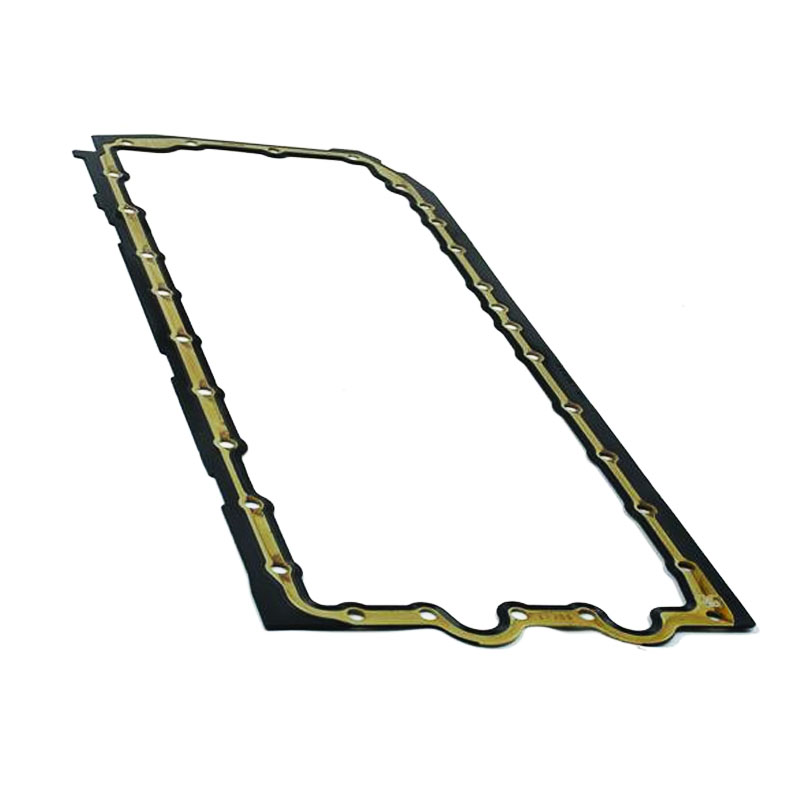Oil Filter Housing Adapter Gasket for Reliable Engine Performance and Leak Prevention
Understanding Oil Filter Housing Adapter Gaskets
When it comes to maintaining the longevity and performance of an automobile, one often overlooked component is the oil filter housing adapter gasket. While it may seem minor in the grand scheme of things, this gasket plays a crucial role in ensuring a vehicle runs smoothly and efficiently. In this article, we will explore the purpose, importance, and maintenance of oil filter housing adapter gaskets.
What is an Oil Filter Housing Adapter Gasket?
The oil filter housing adapter gasket is a sealing component located between the oil filter housing and the engine. Its primary function is to create a leak-proof seal, preventing oil from escaping the system. This seal is important for maintaining optimal oil pressure and flow, which are critical for lubricating the engine’s moving parts and preventing wear.
The Importance of the Gasket
1. Prevention of Oil Leaks One of the main functions of the oil filter housing adapter gasket is to prevent oil leaks. Over time, gaskets can wear out due to heat, pressure, and exposure to various chemicals. A worn or damaged gasket can lead to oil leaks, which can not only create a mess under the vehicle but also pose risks of engine damage if oil levels drop too low.
2. Maintaining Oil Pressure The oil circulating through an engine requires a certain pressure to function effectively. A compromised gasket can lead to a drop in oil pressure, which can result in insufficient lubrication. This insufficient lubrication can lead to increased friction, overheating, and eventual engine failure.
3. Environmental Considerations Oil leaks not only harm the vehicle but also the environment. Used motor oil is toxic, and leaks can contaminate soil and waterways. Proper maintenance of the oil filter housing adapter gasket contributes to environmentally responsible vehicle ownership.
oil filter housing adapter gasket

Signs of a Failing Gasket
Recognizing the early signs of a failing oil filter housing adapter gasket can save a significant amount of time and money in repairs. Some common symptoms include
- Oil Spots or Puddles If you notice oil spots under your vehicle, it may indicate a leaking gasket. - Low Oil Levels Frequent oil level drops can signify a leak somewhere in the system, including the gasket. - Engine Smell A burnt oil smell may arise if oil is leaking onto hot engine components. - Low Oil Pressure Warning Light If the oil pressure light activates, it could be a sign of inadequate oil pressure due to a compromised gasket.
Maintenance and Replacement
To ensure the longevity of the oil filter housing adapter gasket, regular maintenance is essential. Here are some tips for upkeep
- Regular Oil Changes Keeping up with oil changes can help maintain engine health and prolong the life of the oil filter housing adapter gasket. Always use the recommended oil type for your vehicle. - Check for Leaks Regularly inspect your vehicle for any signs of oil leaks. Addressing any leaks promptly can prevent further damage. - Replace as Needed Gaskets are not designed to last forever. If you suspect your gasket is failing, have it inspected and replaced as necessary to maintain optimal engine performance.
Conclusion
The oil filter housing adapter gasket may seem like a small part of your vehicle's engine, but its role in maintaining oil pressure and preventing leaks is critical. Recognizing the signs of a failing gasket can save you from costly repairs and ensure your engine remains in good working order. Routine checks and maintenance will not only extend the lifespan of this component but also contribute to overall vehicle health. Always consult with a professional mechanic if you have concerns about the condition of your oil filter housing adapter gasket. Investing in preventive care today can save you significant hassles down the road.
-
Simplifying Oil Changes: A Comprehensive Guide to Oil Drain Plugs and Their Variants
News Aug.04,2025
-
Mastering Oil Drain Maintenance: Solutions for Stripped, Worn, and Upgraded Oil Plugs
News Aug.04,2025
-
Fixing Oil Pan Plug Issues: Leaks, Stripped Nuts, and the Right Replacement Solutions
News Aug.04,2025
-
Everything You Need to Know About Oil Drain Plugs: Sizes, Fixes, and Upgrades
News Aug.04,2025
-
Choosing the Right Oil Drain Plug: A Guide to Sizes, Materials, and Drain Innovations
News Aug.04,2025
-
A Complete Guide to Automotive Drain Plugs: Types, Problems, and Innovative Solutions
News Aug.04,2025
-
The Ultimate Guide to Car Repair Kits: Tools and Essentials Every Driver Should Own
News Aug.01,2025
Products categories















